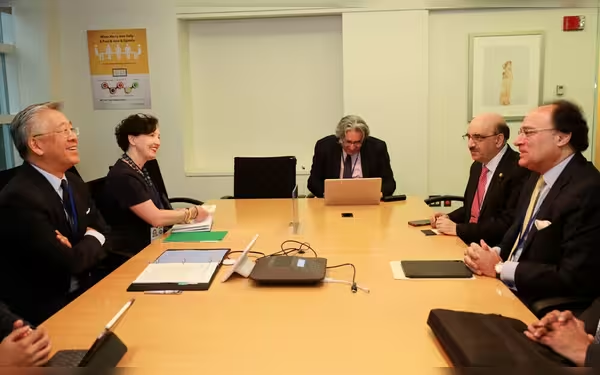Tuesday, July 2, 2024 03:29 PM
Pakistan's Finance Minister Stands Firm on Rupee Devaluation
- Pakistan's strong foreign-exchange reserves and stable currency
- Focus on strengthening industries, agriculture, and IT sector for growth
- Anticipates IMF agreement for economic reform and investor confidence
 Image Credits: Business Recorder
Image Credits: Business RecorderPakistan's Finance Minister asserts no major rupee devaluation, focusing on economic stability, growth through sectoral strengthening, and IMF negotiations for reform and investor confidence.
Pakistan's Finance Minister, Muhammad Aurangzeb, has firmly stated that there will be no major rupee devaluation as the country prepares for discussions with the International Monetary Fund (IMF). Aurangzeb highlighted Pakistan's strong foreign-exchange reserves, stable currency, increasing remittances, and steady exports as reasons for not needing a significant devaluation.
During a roundtable meeting with Bloomberg in Washington, Aurangzeb emphasized the government's focus on strengthening industries, agriculture, and the information technology sector to boost national growth above four percent in the upcoming years. He expressed confidence that Pakistan's economic projections should remain stable, with the only potential risk being fluctuations in oil prices.
Pakistan anticipates an IMF mission visit in May and aims to secure a staff-level agreement on a new loan by the end of June or early July. The nation is reportedly seeking at least $6 billion in funding. A successful agreement with the IMF would not only support Pakistan's economic reform agenda but also enhance investor confidence, potentially benefiting the country's dollar bonds and stock market.
The Finance Minister reassured that Pakistan does not foresee any significant currency devaluation during the negotiations with the IMF. He stated that the rupee's depreciation should remain within the typical range of 6% to 8% seen in a standard year, avoiding the need for drastic measures that have been associated with previous IMF loans.
In a high-profile meeting at the IMF/World Bank Spring Meetings, Aurangzeb emphasized the importance of a robust financial safety net to address geo-economic impacts and climate vulnerabilities. The government's efforts to bolster key sectors and implement economic reforms aim to steer Pakistan towards higher growth rates and improved financial stability.
In conclusion, Pakistan's stance on avoiding significant rupee devaluation reflects its commitment to maintaining economic stability and fostering growth through strategic reforms and prudent financial management.













